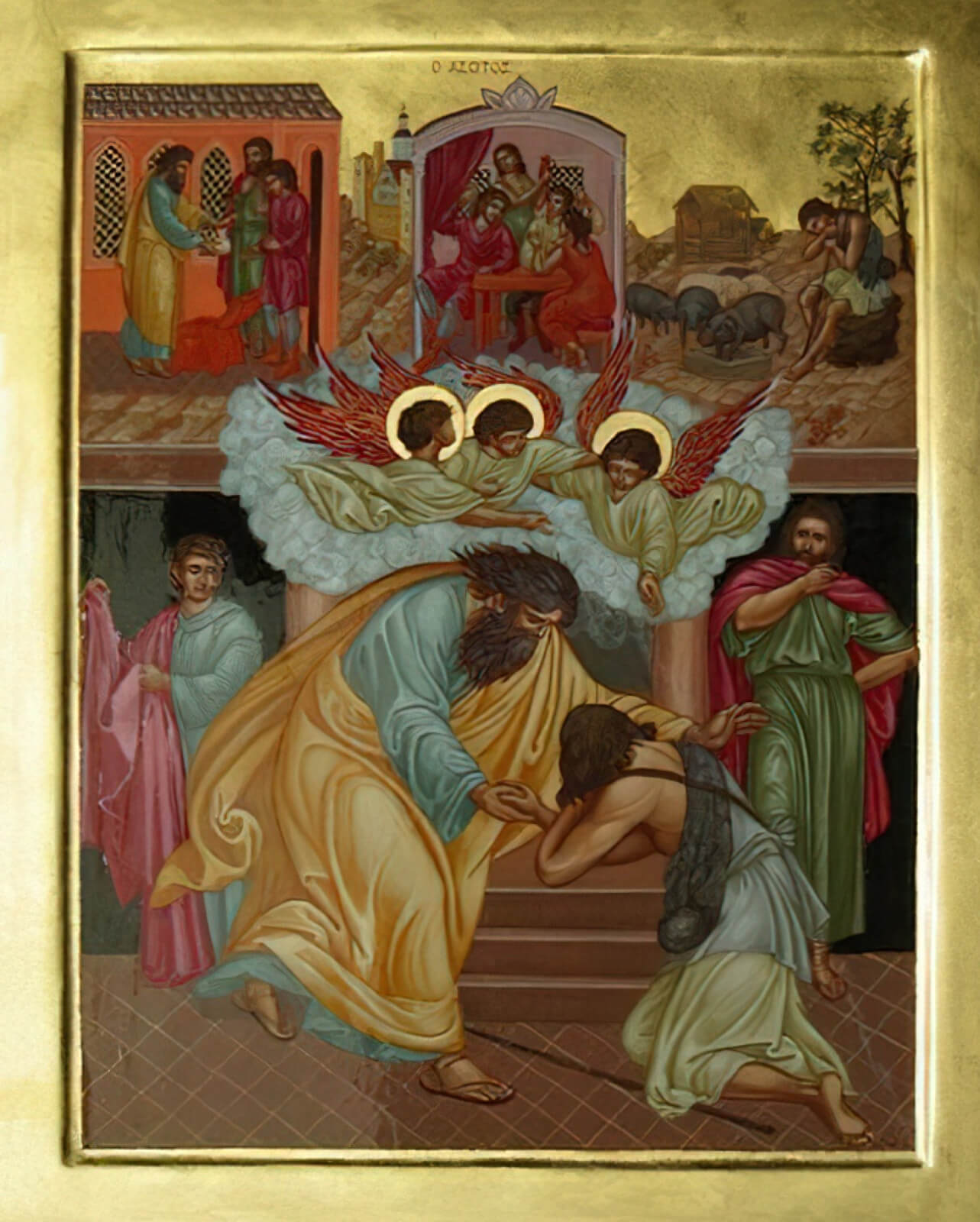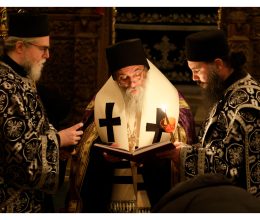To be lost, to be in sin, to be in passions, enslaved to the old man within oneself, far from God, and yet angry at others for one’s own condition, is not something new or strange for humanity, for the entire human history is a history of sin, and even more unknown to God, since God constantly calls for communion with Him. The parable of the prodigal son, which is read in this week, from which the week itself gets its name, is a beautiful portrayal of human tragedy, but also of the greatness of a person who knows how to say: “I will stop my pride, my self-love, my drunkenness from sin, my insanity, and I will return to my Father, to God.” This decision and this act are the greatest miracle of God’s mercy towards the sinner. That turning and coming to oneself is what made our Savior become human, suffer, die, be buried and resurrect. This is called true repentance.

The preachers of repentance, the Holy Hierarchs and Ecumenical Teachers Basil the Great, Gregory the Theologian, and John Chrysostom, those pillars of Orthodoxy, secure ships towards salvation, have surrounded the Church like secure walls, making it well-fortified and an unconquerable city. We joyfully celebrate their memory.
In a prayerful atmosphere of repentance, and at the same time in indescribable joy and emotion from the encounter with God through the vigil and the Holy Hierarchical Liturgy, our Elder, the Abbot of Bigorski, Bishop Mr. Partenij, conveyed to us the message and call from God for communion with Him. The Father’s generosity, the merciful Father, calls us all to His home, to His closeness. Drawing on the lesson from today’s Gospel reading, let us prepare ourselves for the Holy and Great Lent that awaits us, in honor of the Resurrection of Christ.















